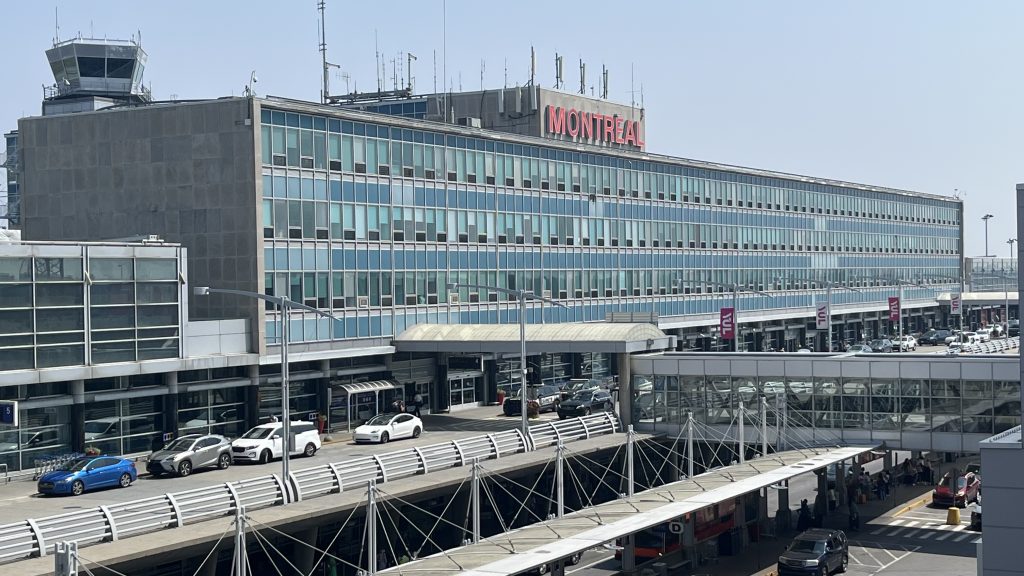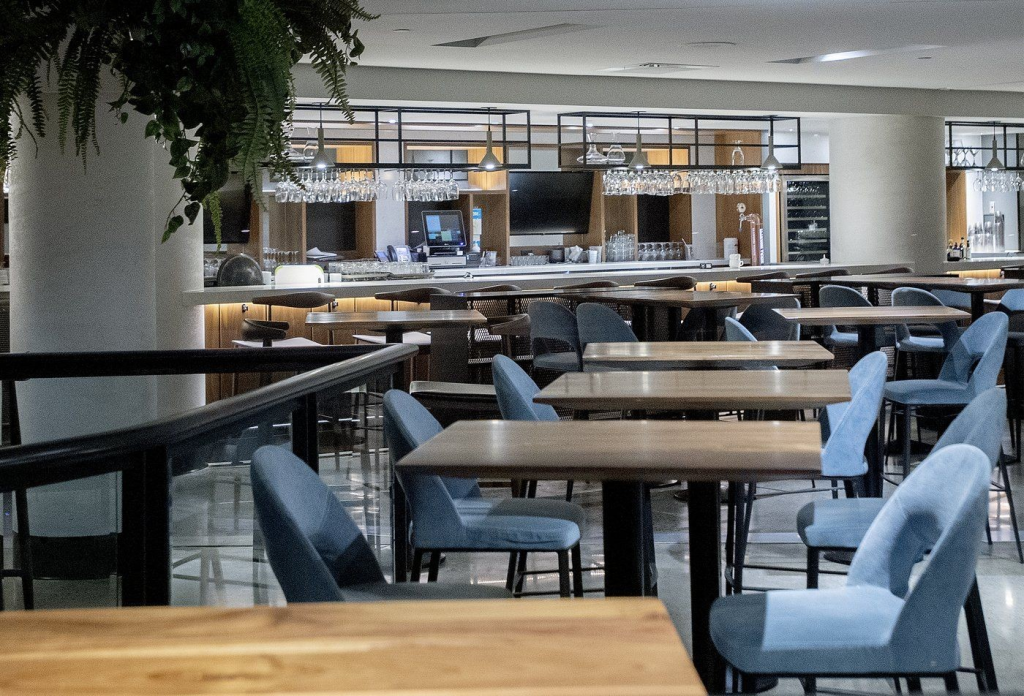A trip to the Middle East ended horribly for a Canadian citizen who is now back home and speaking out about what he calls a lack of help from the Canadian government for allegations of poor treatment while inside a prison in the United Arab Emirates (UAE).
“I am still suffering from that experience,” said Brantford resident Ghazwan Abdel-Jeleel. “I want policy and systemic change to make sure no other Canadian is ever abandoned like this abroad.”
Abdel-Jeleel’s ordeal began on April 25, 2024, in a parking lot in Abu Dhabi where he and another man, a UAE citizen, got into an altercation and argument over a parking spot. In surveillance video he shared with CityNews, you can see him and the man get into a shoving match.
“I wasn’t the one who started the fight, and I provided a video recording from the restaurant nearby, which I believe proves that, but the authorities didn’t even look at it.”
Abdel-Jeleel was charged with assault, but he said that wasn’t the only accusation he was facing.
“The other man told officers that I cursed at the police. That’s not allowed.”
Abdel-Jeleel said he was told to postpone his trip back home to Canada and stay in the UAE until a scheduled meeting with the prosecutor, which took place several weeks later in June.
“And after that meeting, I was sent to Al Sadr Prison in Abu Dhabi,” he told CityNews. “No questions, no due process, no conviction. They kept me in state security prison for 10 months, and after that they said, ‘Okay, deportation.’”
Neither Abu Dhabi police nor UAE Government officials responded to multiple requests from CityNews for comment on Abdel-Jeleel’s claims.
While frustrated over his claims of no due process, Abdel-Jeleel also said he was poorly treated while in prison and frustrated with the response to his repeated cries for help to the Canadian Embassy in the UAE.
Abdel-Jeleel suffers from a variety of health conditions, including PTSD, sleep apnea and diabetes and said his requests to prison officials for medicine he depends on were repeatedly denied.
“Every other day, I would leave distressed voicemail messages to the Canadian embassy to ask them to intervene.”
Eventually, two embassy officials paid him a visit in prison.
“I told them, ‘Guys, I need your help. My health is not good. They keep cutting my medication. I’m not even sure if I am going to make it out or not.’ They said, ‘Okay, we’ll send a diplomatic letter from the Minister of Foreign Affairs, Canada, to the Ministry of Foreign Affairs in the United Arab Emirates. ‘”
Abdel-Jeleel said he was told three letters were sent on his behalf, but claims no medical treatment was ever provided.
“Their pressure did nothing. I felt abandoned as a Canadian citizen.”
Upon his return to Canada, he began sending messages to government officials in an attempt to get answers as to what happened, sending emails to his Member of Parliament, Global Affairs Canada and even the office of the Prime Minister.
“Please be assured that your communication has been received and carefully read,” a reply from the Office of the Prime Minister read. “With this reply, I am forwarding your remarks to Canada’s federal Minister of Foreign Affairs, the Honourable Anita Anand, for her information and consideration.”
Global Affairs also responded to his requests, saying they would take a look at his case.
In a statement to Speakers Corner, a Global Affairs spokesperson said they did advocate on his behalf. “Global Affairs Canada is aware of the detention of a Canadian citizen in the United Arab Emirates.”
The spokesperson went on to say that Canadian officials provided consular assistance to Abdeel-Jeleel and were in contact with local authorities.
“Consular officials can request that foreign penal authorities address health-related concerns of Canadian detainees. However, Canada has no authority to compel foreign officials to provide a specific medical intervention.”
Citing privacy issues, the agency could not comment further.
According to Canada’s Annual Consular Data report, released this month, Global Affairs opened 1,384 cases to address Canadians detained abroad during the 2023-2024 fiscal year. Abdel-Jeleel is far from being the first Canadian to claim Global Affairs did not do enough to assist after detention abroad.
“They have been sued in the past, many times. But from what I have found in my research, many of those cases were dismissed and did not lead to any real change,” Abdel-Jeleel said. “There needs to be more pressure on the government to do more for people like me.”
In 2018, the Office of the Auditor General of Canada performed an audit focusing on whether Global Affairs Canada responded adequately to requests for consular assistance from Canadians travelling or living abroad.
While the audit found, “Overall, Global Affairs Canada successfully provided consular services during international crises and deployed additional resources to help Canadians abroad,” it also found room for improvement.
The audit found that in cases involving allegations of mistreatment or torture of Canadians detained abroad, consular officers took immediate action to contact detainees and make in-person visits when possible.
“However, we found that it took between one and six months for departmental officials to formally assess the allegations. Also, the Department did not provide sufficient training to consular staff on how to conduct prison visits,” the audit reported.
A spokesperson for Global Affairs said that since the 2018 audit, they’ve undertaken a number of steps to address the findings.
“Global Affairs Canada revised its Torture and Mistreatment Protocol [first developed in 2012] in 2018, and then subsequently in 2022 and 2025, to enhance timeliness in the transmission of case information to relevant stakeholders.”
They say they’ve also strengthened training programs for consular officers who are tasked with conducting visits to prisons.
“These actions reflect Global Affairs Canada’s commitment to protecting the rights and well-being of Canadians detained abroad and to continuously improving the quality and responsiveness of consular services.”
While he has not filed a lawsuit, Abdel-Jeleel has instead started a government petition, which he hopes will force a ministerial investigation into the Embassy’s conduct during his detention.
He hopes that the government would grant diplomatic protection so the individual may seek redress from the UAE, provide redress and financial compensation from the Canadian government for the harm suffered and strengthen accountability and oversight mechanisms for Canadian consular services.
Abdel-Jeleel needs to get support from his MP to proceed.
“There has to be accountability and clear policies so Canadian diplomats know how and when to act in emergencies. I want my suffering to lead to change so others are protected and not forgotten.”
He said losing 10 months abroad has destroyed his life.
“I lost my job, lost my health, lost everything. I have nothing. Policy must change.”
If you have an issue, a story or a question you’d like us to look into, contact us.




